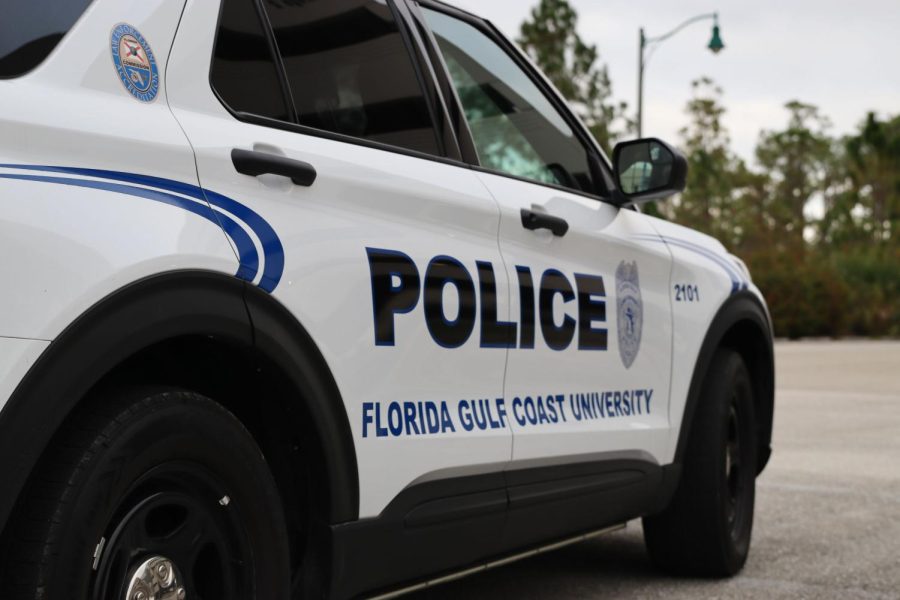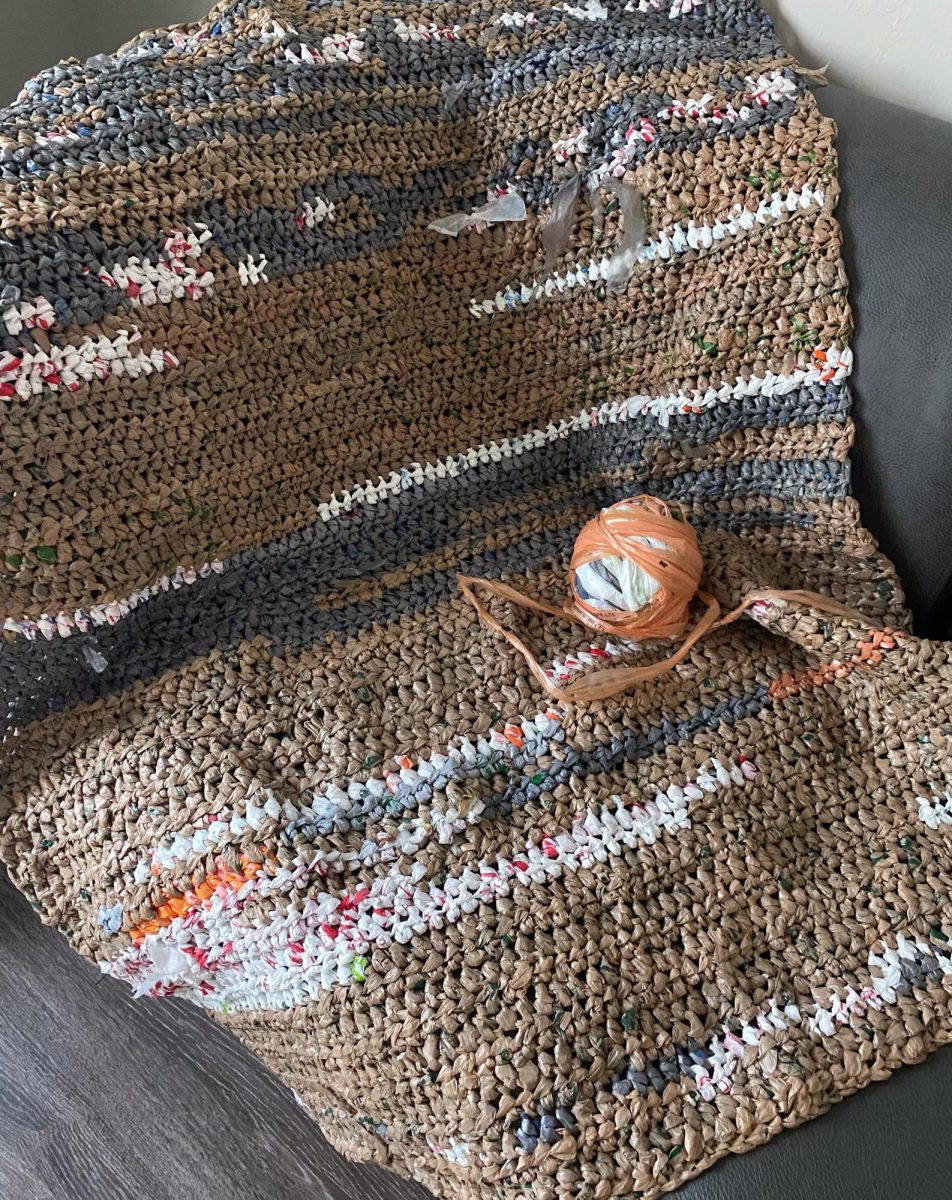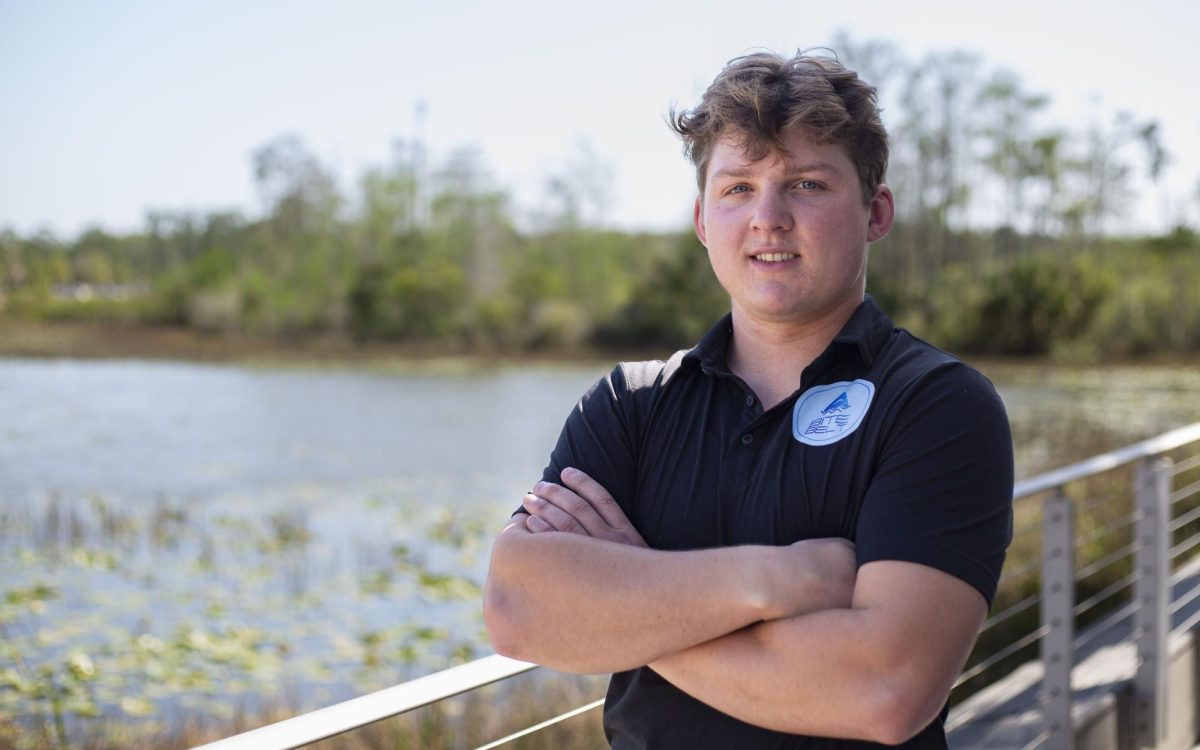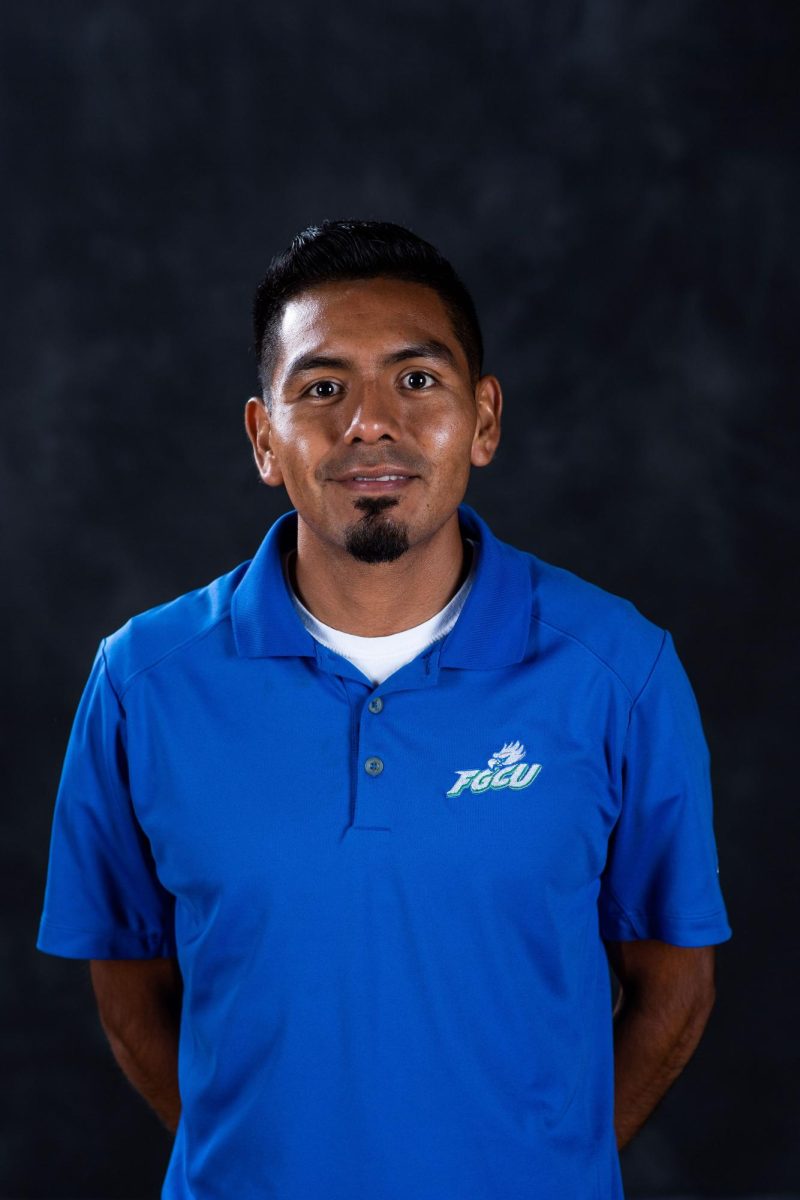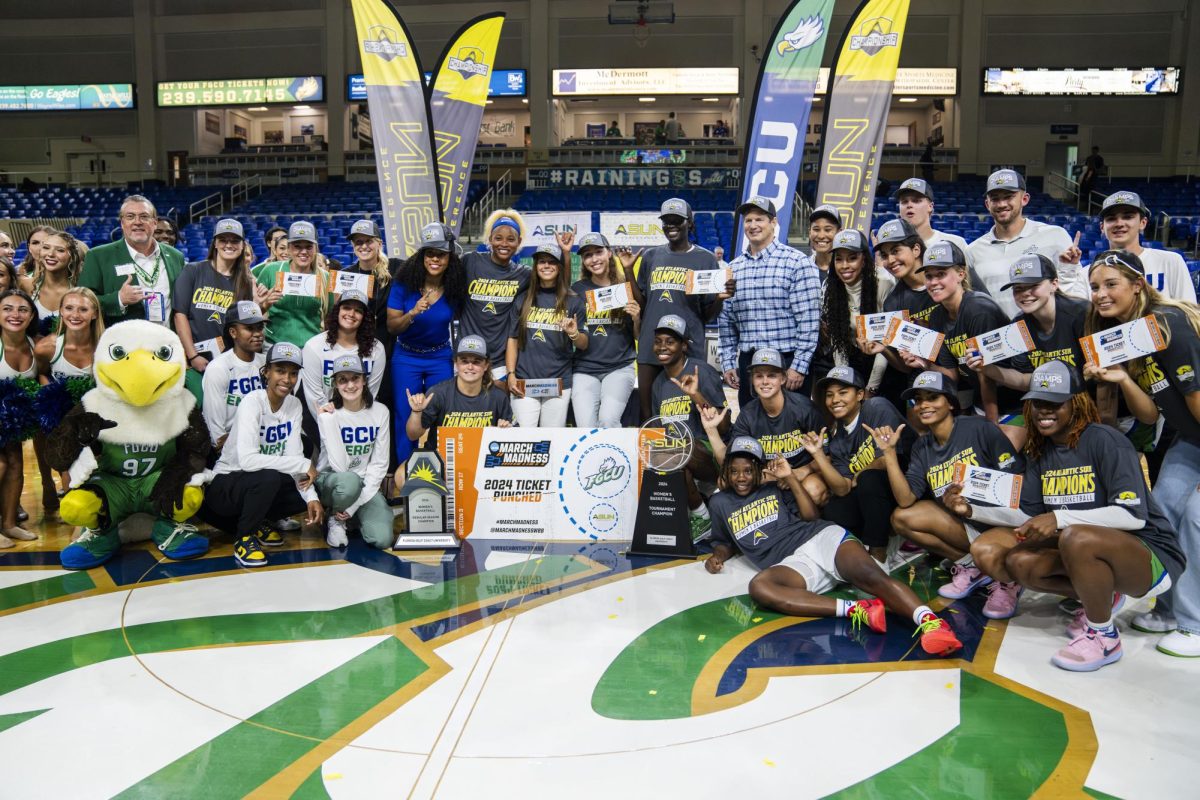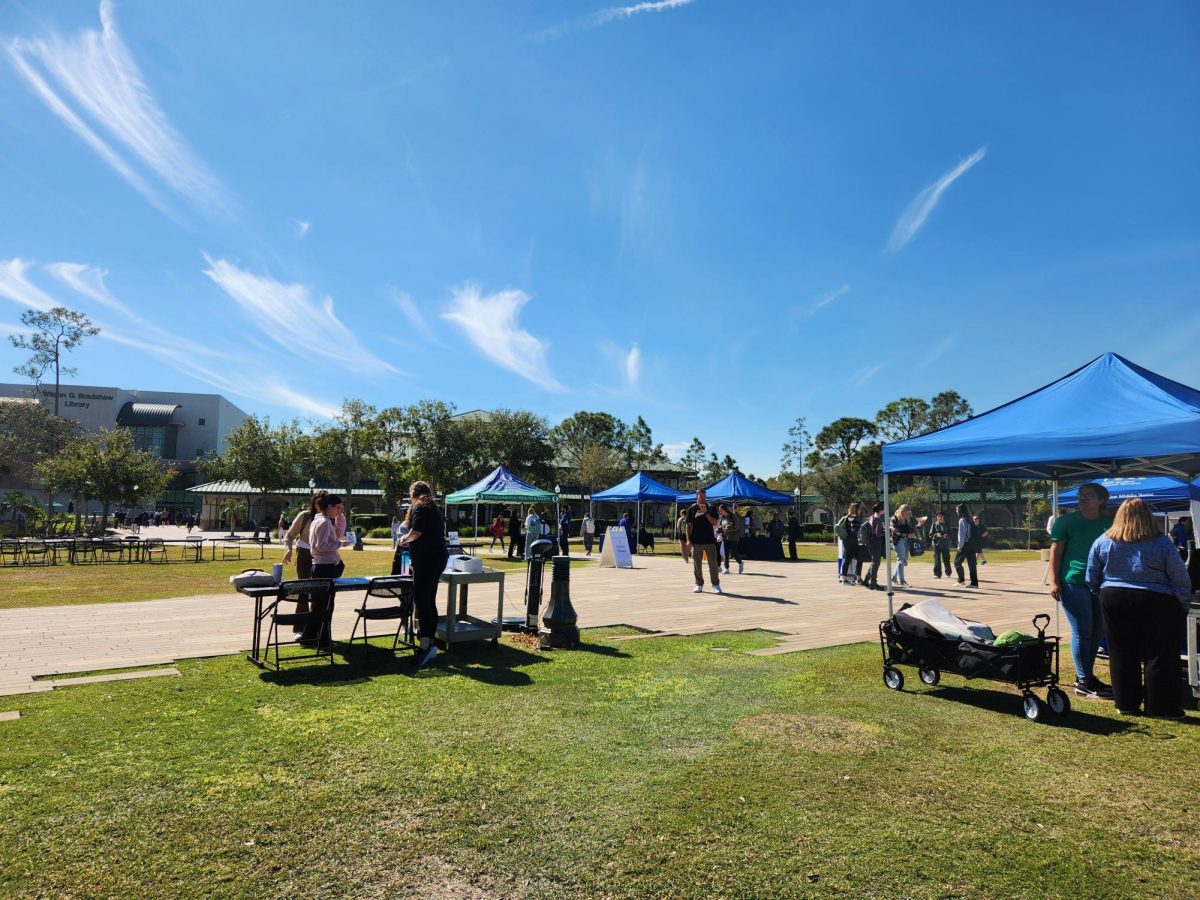Sexual assault on college campuses is not a new problem for FGCU faculty and staff.
“It’s not a new concept for the people who do this, but it’s a very new concept for the Federal Government,” said J. Michael Rollo, the vice president of student affairs.
Marking the 21st anniversary of the Violence Against Women Act, the White House Task Force to Protect Students from Sexual Assault released a resource guide to help staff and faculty at universities handle sexual-assault cases. The guide includes tips to create climate surveys and training kits for campus health centers.
Rollo said sexual assault is an important issue, but FGCU and other Florida universities do a good job having up-to-date processes to handle those situations.
“These cases are extremely hard to deal with,” Rollo said. “They’re extremely sensitive.”
Rollo said it is a good thing there are many different resources on campus for victims of sexual assault, including the Dean of Students Office, Counseling and Psychological Services and Housing and Residence Life.
“When you’re in crisis, you’re not thinking clearly … you’ve been traumatized, so having as many people as possible there to help you make those decisions works effectively,” Rollo said.
“Even if you have an office that’s a very specialized office, people might still go to the police … you report to who you’re comfortable with,” Rollo said.
Judi Gibbons, assistant director of CAPS, said that while it’s important to have many resources for victims of sexual assault, it would be helpful for students to have a specific office where they could speak confidentially before reporting an assault.
“A few years ago, we had some sexual assaults on campus, and there was some concern about the overall university response, and we kind of collectively started thinking, ‘How can we do this better?’” Gibbons said.
In the 2013 cases Gibbons referred to, she said the lack of a centralized place for to which students to go made it difficult for them to report the assault.
“It was difficult for students to know where to get help, and it was difficult because there was some crossed response during that time,” Gibbons said.
Following the 2013 assaults, Gibbons, professor Nicola Foote and associate professor Kristine De Welde wrote a 45-page proposal for an advocacy resource center. ARC would be an entity outside of CAPS, with a licensed counselor to speak to victims of sexual assault and guide students through the reporting process.
A sample of 4,000 students was surveyed for input in the paper in spring 2015, and 166 students completed the survey. Of those students, 38 percent responded positively that there has been a time in the past 12 months when they would have referred someone to a center such as ARC.
The comments that students provided about a resource center varied from: “I am not the only person who had been sexually assaulted on this campus. I would have brought others there. After a rape you need someone to talk to,” to, “Isn’t this what the CAPS counseling is for?”
The paper also references a 2010 climate survey of FGCU faculty in which some faculty indicated the FGCU community could benefit from another resource for victims of sexual assault, and five women and three men reported they had been physically assaulted on campus.
Gibbons said she is hoping ARC will be opened sometime in the next few years, but it depends on funding and space.
Foote said the number one resource FGCU students would benefit from in sexual assault cases is a confidential victim’s advocate because professors and university faculty outside of counseling services are required to report sexual assaults that they are told about.
Foote, Gibbons and De Welde are all members of Assault and Rape Information, Support and Education, a group that was created to educate campus members about sexual assault and help affected students get support.
“ARISE is proactive, but we all have other work … hire someone that their job is just to be a confidential victim’s advocate,” Foote said.
She suggested the advocate would be helpful not just for victims of sexual assault, but for other college students as well. “College students are at an age where students are particularly vulnerable,” Foote said.
Overall, Foote thinks everyone at FGCU “is really committed to helping our students.”
Gibbons said FGCU is “starting to get on track.”
“In terms of compliance we’re on the cutting edge,” Gibbons said. “But now, we have the luxury of going beyond what the government says we must do and look at what we could do.”
In 2013, four forcible sex offences were reported to UPD, and in 2014, three were reported. In 2015, as of Sept. 29, there have been no reported forcible sex offenses, but there has been one reported statutory rape, meaning one person involved was younger than 18.


